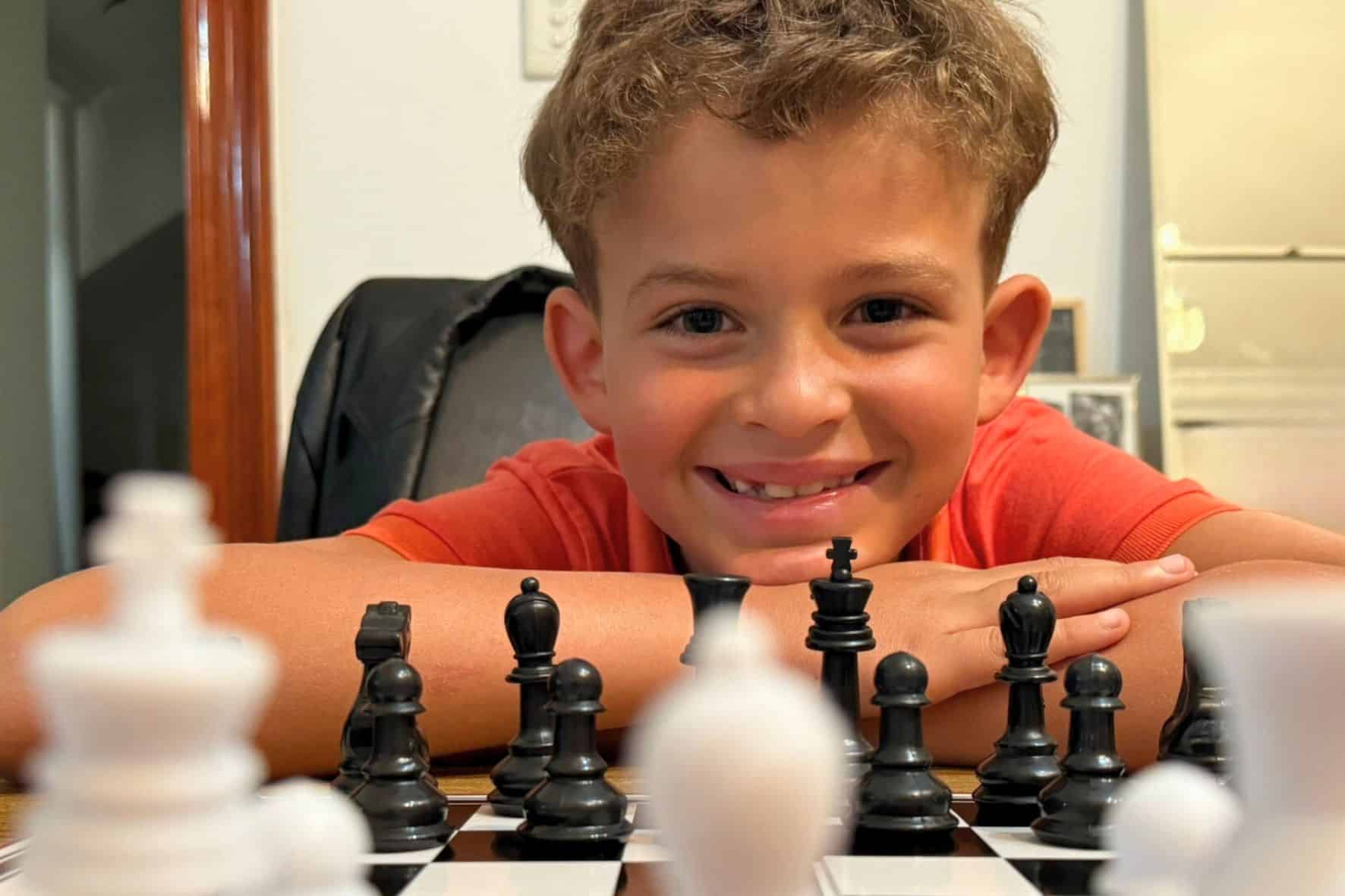Chess teaches so many things to children, from self-confidence to improving cognitive ability. And it's fun, say experts.

A board, a pawn, a king and queen and a small army. It looks deceptively easy, but chess is one of the most complex and strategic games ever invented.
For 1 500 years, the game as we know it today has seen battlefield wins and losses on an intellectual scale.
It’s also one of the most played sports in the world, with an estimated 605 million adults playing regularly.
Learning how to play chess is also a mental workout gift that parents should consider giving their kids. Research across several countries has linked it to gains in concentration, reasoning, emotional maturity and even improved academic performance.
Psychologist and medical doctor Dr Jonathan Redelinghuys said many parents do not realise how much is happening in a child’s mind during a game.
“Chess may look like a quiet activity, but the child is analysing, planning and adapting all the time,” he said. “Every move requires thought, patience and emotional control. It is one of the few activities that trains so many abilities at once.”
Mental workout
Studies support this. Research published through the UK’s National Institute of Health found that chess activity benefits cognition and learning.
A review in Frontiers in Psychology reported measurable improvements in attention, memory, and problem-solving among children as young as five or six who were taught chess.
Another study of parents of young chess players found they believed the game strengthened thinking ability, character and confidence.
Ridgewood College chess coach Melandie Griffiths said she has watched these developments unfold in real time.
“People focus on the obvious things like planning and problem solving, but what happens in a child’s mind during a game is far richer,” she said.
“They learn to analyse patterns, make connections and think several steps ahead. Those skills spill over into maths, reading and even how they make decisions day to day.”
ALSO READ: How to enjoy school more – new book
Griffiths said she sees these benefits daily.
“Chess teaches children to pause and think,” she said.
“They learn to weigh up choices, consider consequences and act with intention. Even the youngest players start learning how to speak up for themselves at tournaments and explain what happened when something goes wrong. That kind of confidence translates into the classroom too.”
Confidence translates to the classroom
Concentration is one of the first skills that develops. Research by Smartick, an online maths programme that reviewed the impact of chess on children, suggested that the game supports sustained attention because players must keep track of patterns, moves and possibilities.
Griffiths said even children who struggle to focus often settle into a game more easily than expected. “Chess holds their attention because they want to understand what happens next,” she said. “It becomes natural for them to stay with the moment.”
Problem-solving improves, too.
Players must anticipate their opponent’s moves, adjust their own strategy, and recover quickly from setbacks on the board.
A recent study in Romania found that nine-year-olds who received chess training showed clear cognitive gains.
Dr Redelinghuys said that playing chess also helps children learn to manage their emotions and behaviour. Patience develops because they need to slow down and think carefully. Losing a piece or a match becomes an opportunity to learn, rather than a personal failure.
“Chess gives children a safe experience of struggle,” said Dr Redelinghuys. “A poor decision on the board is something they can correct next time. They learn to deal with disappointment without becoming overwhelmed.”
This, in turn, builds confidence, he said.
“As children get better at the game, they experience success based on effort and practice.”
Success is based on effort
Griffiths said this emotional learning is one of chess’s most underrated strengths.
“Children gain a sense of control,” she said. “They see that improvement comes from trying again, even after a string of losses. That perseverance filters into other parts of life. It is rare to find an activity where losing repeatedly is part of the process, and yet they keep going.”
Chess also encourages social development, added Dr Redelinghuys.
“Whether it is played with a friend, a teacher or a club, the game becomes a shared experience. Children learn to communicate, read subtle cues, show respect and practise good sportsmanship.”
Griffiths agreed, adding that tournaments give children an unusual level of independence. “There is no parent or teacher stepping in at the board,” she said.
“Children must explain their side to an arbiter clearly and respectfully. Watching a six-year-old advocate for themselves in that environment is powerful. That kind of self-expression is not something many activities can teach.”
Chess teaches self-expression
Several studies suggest that children can begin learning how to play chess from around five or six, once they understand simple rules and can focus for short periods.
Early introduction, some research showed, held benefits for attention, memory and logical thinking, although beginning later is equally worthwhile.
“The right age is when the child is curious,” said Dr Redelinghuys. “If they are willing to learn the moves and enjoy the experience, that is all you need. It is never too early or too late.”
Griffiths said that teaching chess to newbies must be playful.
“Familiarising children with the pieces, using simple games and keeping sessions short helps them feel comfortable,” said Griffiths. “Make the game fun and the learning will follow,” she said.
“The goal is not to create master players but to develop patience, resilience and the understanding that every move has a consequence. Those lessons stay with them long after they leave the board.”
NOW READ: Getting ready for Grade 1: What every parent should know
Support Local Journalism
Add The Citizen as a Preferred Source on Google and follow us on Google News to see more of our trusted reporting in Google News and Top Stories.








